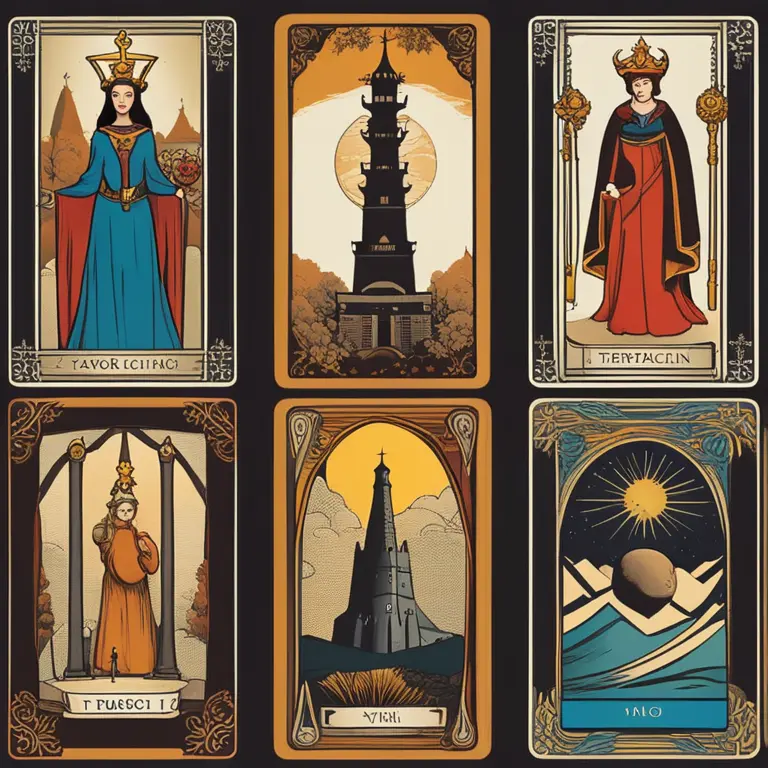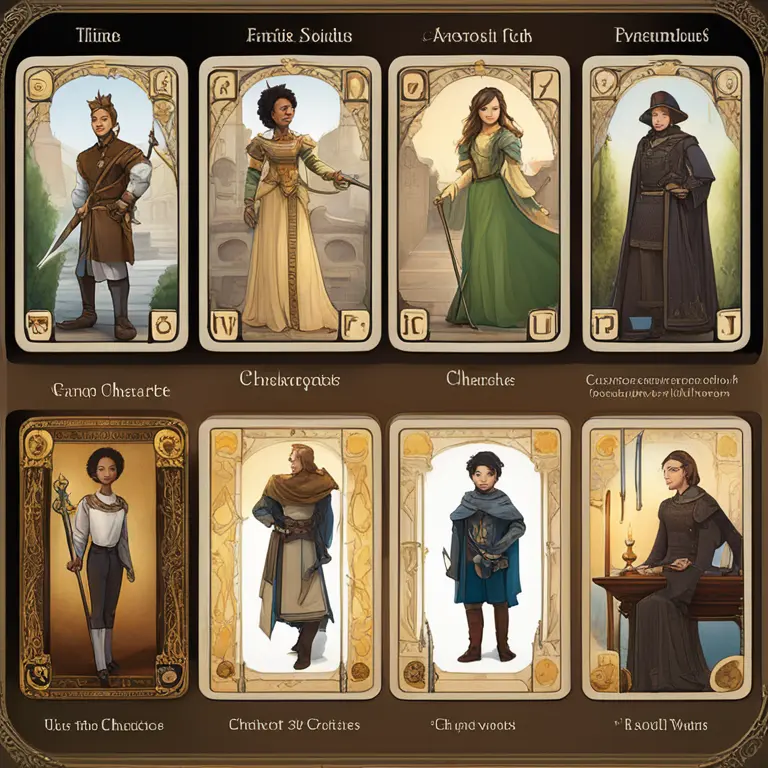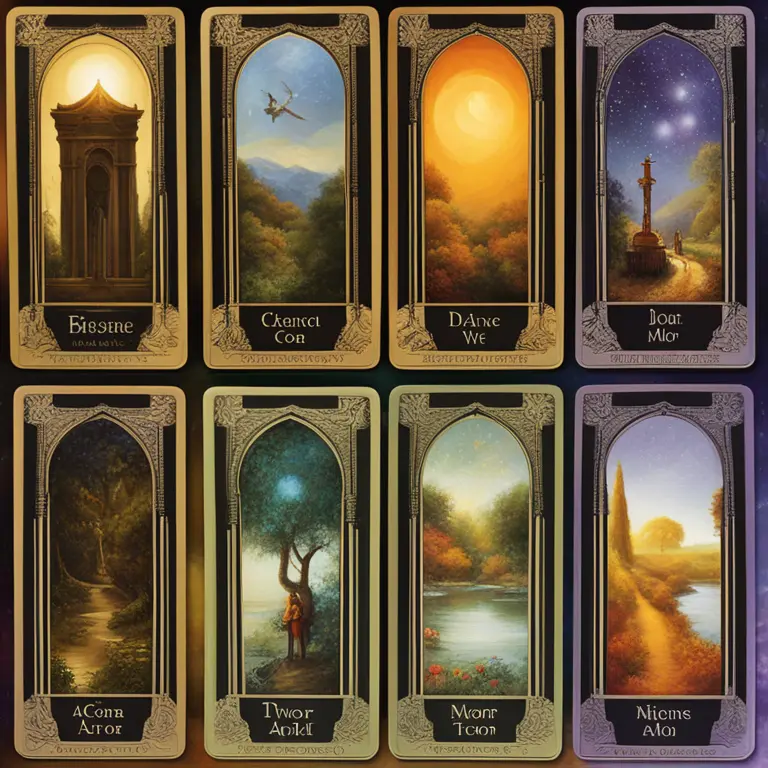
Introducing Tarot to Writers
For many, tarot cards are simply a tool for divination. But for writers, they serve as a treasure trove of creativity and insight. As a writer, delving deep into the subconscious mind helps weave narratives that resonate with readers. The allegorical images and symbols within the tarot deck offer a unique pathway to unlocking the stories that lie dormant within your creative psyche. They are not just prophetic tools, but narrative devices that can foster character development, plot progression, and thematic depth.

The Arcana of Storytelling
The tarot deck is divided into the Major and Minor Arcana, each holding keys to comprehensive storytelling. The Major Arcana can represent significant life themes or pivotal events, perfect for shaping main plot points or character arcs. Meanwhile, the Minor Arcana often reflects day-to-day happenings and smaller, character-defining moments. Integrating these facets into your craft, you can create stories with a natural flow that mirrors the human experience and captures the essence of real-life challenges and victories.

Characters and Court Cards
Character development is essential to engaging stories. The court cards—King, Queen, Knight, and Page—can inspire complex characters within your tales. Each suit in tarot encapsulates different aspects of personality: Cups for emotions, Wands for ambition, Swords for conflict, and Pentacles for material matters. Drawing a court card can guide you in crafting a character's background, motivations, and potential growth, adding layers to your narrative fabric.

Plot Twists with Tarot Spreads
Tarot spreads lay out cards in specific formations, offering structure to the insights they provide. As a plotting tool, different spreads can outline a story arc or suggest unexpected turns. Draw several cards for the skeleton of your story: beginning, conflict, climax, and resolution. Interpret each card as a scene or chapter in your manuscript, allowing the imagery and symbolism to suggest intricate plots and subplots to enrich your writing.
Fate and Free Will in Writing
Astrology and tarot both grapple with the themes of fate and free will, just as writers do in their narratives. The stars might suggest what could happen in 2024 and beyond, but everyone has the power to shape their destiny. Apply this same principle to your characters. Use the cards to draft their fates but let their free will drive the story's direction. It's a beautiful dance between the predetermined and the potential, mirroring life's unpredictability.
Conclusion: Integrating Tarot in Your Writing Ritual
Incorporating tarot into your writing does not require belief in the mystical. It demands an openness to interpreting symbolic language and an appreciation for the complexity of human experiences encapsulated within the cards. Whether seeking fresh ideas or attempting to break through writer's block, tarot can offer a path to renewed creativity and narrative discovery. Turn to the cards when your prose needs a burst of inspiration or when your characters need to find their way.
Published: 1/17/2024
Modified: 1/17/2024
More predictions
Come back here soon to learn more about yourself and your future


Can Tarot Cards Predict Your Love?
Discover the mystical connection between tarot readings and predicting love, from finding soulmates to navigating relationships through the arcane.


The Meaning of Jumping Tarot Cards
Uncover the significance of jumping tarot cards during readings and how these unexpected moments can offer deep insights.


The Tarot Card of Virgo: Mystical Insight
Delve deep into the association between Virgo and its tarot persona, examining the symbolic connections in the tarot universe.